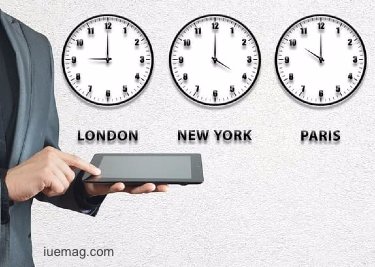

Effective Ways to Reduce No-show in Your Dental Practice

Appointment cancellations—or no shows— can be a significant hindrance for any dental offices, especially during busy hours. Canceled appointments can significantly hurt your overhead costs. So, the right scheduling management and setting up protocols are very important for a successful dental practice.
Here, dentists at North York Smile Centre provide few tips on how to manage these sudden cancellations, including how we should follow-up on patients who canceled.
Understanding The Types of Patients and Cancellation Policies
Although we shouldn’t generalize patients, we can categorize patients into different groups, along with how we should handle their appointments in general.
1. New Patients-In general, a call, text, or email reminder from the dentist’s office can dramatically reduce no-shows
2. Patients using Medicare, Medicaid, or other government insurance are generally less reliable than those with private insurance (or pay from their own pockets).
3. Older patients (30s and above) tend to be more reliable with doctor appointments. Patients in their 20s, in general, shouldn’t be prioritized
4. Patients who have made sudden cancellations before. In general, you can dismiss these patients or put them on a shortlist. You can of ours weigh their reasons and their attitude (whether they apologized for their no shows, etc.)
5. Patients who haven’t scheduled an appointment for a while but suddenly called are generally unreliable. This will include patients who only come in emergencies.
6. Parents making appointments for their grown children. In these cases, cancellations are quite often. The same thing can be said when someone is calling for an appointment for their spouse.
7. International patients can be risky with their language or culture barrier.
Create/Invest in a System To Help Patients Confirm Appointments
One of, if not the biggest reason for a patient no-show is that they simply forget about the appointment.
Thankfully, nowadays we have various ways to deal with this issue via technologies. Most patients nowadays own at least one mobile device, especially a smartphone. We can invest in an appointment system (available from various vendors online, some are free), which can send SMS reminders at the time of scheduling, and even send RSVP confirmation the day before the appointment. If necessary, you can also send another text one or two hours before the appointment to make sure.
Of course, you can do this manually by hiring a receptionist to send SMS/email/Whatsapp message to the patients, but there are two disadvantages of this: first, your employee is prone to human error and can also forget or miss an appointment schedule. Second, investing in software is generally the more cost-efficient choice in the long run compared to hiring someone.

Let Your Patient Know That Cancellation is Bad
Be honest and upfront (but stay polite) that appointments are very important for your business, so you can explain to them not to incur last-minute cancellations. You can, for example, have a 24-hour cancellation policy, and you can implement a cancellation fee for last-minute cancellations (of course, this will be hard to implement on new patients or if you are a private practice). You can, for example, charge a percentage of your fee on their next visit. Explain that this policy is necessary to maintain a low operating cost for all patients.
Even if you implement this policy, it’s very rare that you will actually need to charge a patient. It is, however, quite effective at encouraging the patient to actually make the visit or at least reschedule a day beforehand.
There are, however, cases where some patients keep making no-shows for one reason or another. If one patient has two missed appointments at a relatively short time-frame, you might not want to reschedule this patient again. Put these patients on a shortlist and notify them only when there are openings on times that are usually not busy or when there are other cancellations in place.
Reserve your prime-time slots (after office hours, weekends, etc.) only for reliable patients.
Always Be Polite and Open to Reasons
We should, however, recognize that there are always cases of sudden illnesses, accidents, and other emergencies that might cause sudden cancellations. The issue is discerning between those with valid reasons or those that are actually chronic no-shows.
To avoid this issue, address all cancellations politely and listen to their reasons. Pay extra attention to those with illnesses as the reason. Contagious diseases can easily spread among other patients and other people in your office (including you). Ask about their condition, and as a health-practitioner, try to give helpful advice. Do not encourage someone with contagious diseases (including flu) to come in. Advise them to reschedule for next week’s openings.
Typically, these emergency cancellations are relatively rare, and they will usually notify you at least several hours before their appointment (unless they are scheduled as the first patients in the morning). This should give you sufficient time to call on other patients on the shortlist to replace the schedule.

Here are some important considerations on following up no shows:
1. The people who will call or reach out to the patient should review the respective patient’s chart before making the call. Important information like the last treatment received by the patient and family members who have been treated by your dental practice should be noted.
2. Use this information you’ve acquired in your call before you ask about their cancellations. Some patients might be disappointed with certain aspects during their previous treatments, and sometimes they will just mention it, for example, “I felt so much pain after my last root canal, I remembered it and decided I can’t make it to the appointment, sorry”. In this case, you can devise a solution. Here, you should show that the office does care about their well-being (and you remembered their details). Then, mention that the dentist was concerned about them missing the appointment, and ask about their reasons.
3. You would want someone with good communication skills to make the follow-up. The idea is to find out what might have caused the cancellation. They might be upset with someone at the dental office, they might be afraid about their financial situations, and so on. Figure out these barriers and find a solution to help them,
Conclusion
It’s important to understand that some people can cancel due to sudden financial issues or dental anxiety, and these reasons are often not communicated honestly during the call. It’s important to always be polite in handling all cancellations, and always encourage the person to keep the appointment when they can.
Copyrights © 2026 Inspiration Unlimited - iU - Online Global Positivity Media
Any facts, figures or references stated here are made by the author & don't reflect the endorsement of iU at all times unless otherwise drafted by official staff at iU. A part [small/large] could be AI generated content at times and it's inevitable today. If you have a feedback particularly with regards to that, feel free to let us know. This article was first published here on 21st January 2020.
Want to Publish About Your Business / Achievements
Let's Discuss Right Away!

All chats are end-to-end encrypted by WhatsApp and won't be shared anywhere [won't be stored either].

